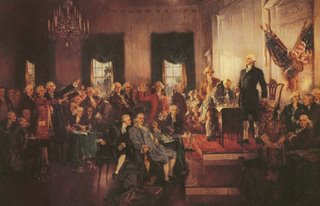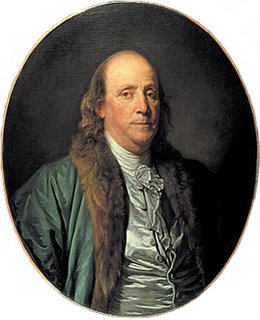 We now live in a culture that has managed to make the masculine role model the most ridiculous character on the face of the earth. When you watch television, the hapless idiot is usually the father. When you read the transcript of the California State Senate, you find that the word "father" is now a shameful word that must be stricken from public textbooks. When you read a recent edition of Newsweek, you learn that today’s boys are dangerous and out of control. The truth is that our culture is having an agenda rammed down its throat. A small, self-appointed few believe that men are dangerous for a civil society. The truth is that this is a deadly strategy to remove the first line of defense for a healthy home, family and nation.
We now live in a culture that has managed to make the masculine role model the most ridiculous character on the face of the earth. When you watch television, the hapless idiot is usually the father. When you read the transcript of the California State Senate, you find that the word "father" is now a shameful word that must be stricken from public textbooks. When you read a recent edition of Newsweek, you learn that today’s boys are dangerous and out of control. The truth is that our culture is having an agenda rammed down its throat. A small, self-appointed few believe that men are dangerous for a civil society. The truth is that this is a deadly strategy to remove the first line of defense for a healthy home, family and nation.In fact, good men are essential for a civil society. The problem with men is that they are far more vulnerable to these attacks than we imagined. Note these painful statistics which have led Dr. William Pollack of the Harvard Medical School Center for Men to state that the general health of American males is in a state of serious crisis:
*The suicide rate for boys, young fathers and older men range from four to ten times higher than for their female counterparts.
*Men, whose average life expectancy was formerly on a par with women, are now dying ten years earlier.
*Boys have inferior reading and comprehension scores and lower graduation rates than girls.
*In child custody cases fathers only get their children 10 percent of the time in uncontested cases and 15 percent of
the time in contested cases. (This might make sense in a workforce dominated by men, but the number of men and
women in the workforce is almost evenly split.)
God gave the world the gift of manhood and fatherhood. Masculine men are His creation. In our fallen condition we have undeniable problems, but nothing that the gospel of Jesus Christ cannot fix. So what is the problem with men? They are expected to be something that they are not. And when they are what they were made to be, adventuresome, wild and strong they are castigated. Recently, someone told me "to get in touch with my feminine side." I laughed and responded, "I don't have a feminine side! I have my wife, she is God's gift of femininity to me, and I'll get in touch with her anytime!"
Ed Litton

